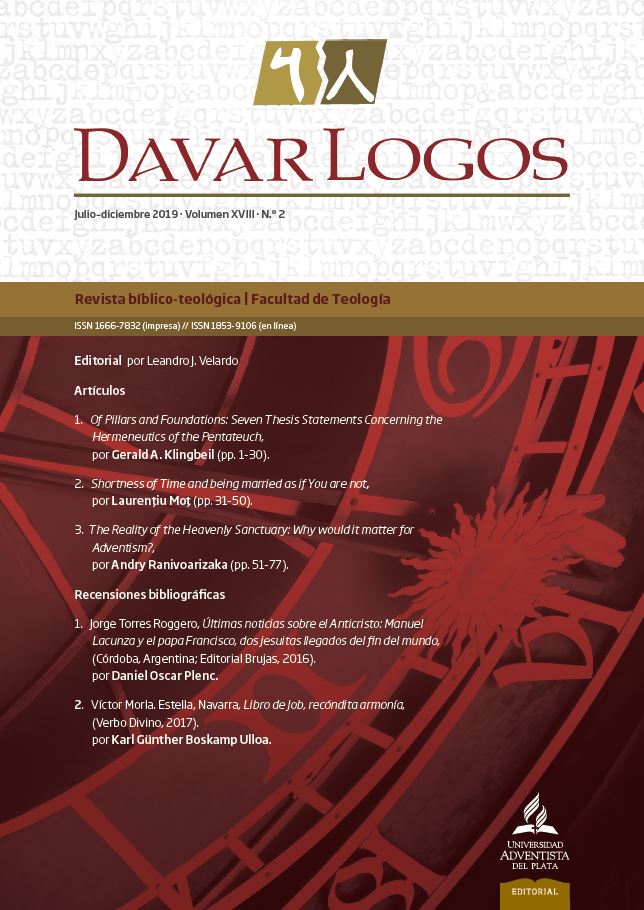This is an outdated version published on 2020-05-18. Read the most recent version.
Shortness of Time and being Married as if You are not
Keywords:
Time of the end, Marriage, Celibacy, 1 Corinthians 7Abstract
The article takes up the question of what Paul means in 1 Corinthians 7,29 when he states that, for the remaining time, those who have a wife should be as if they do not have one. This can refer either to a universal, timeless ethical principle or to one limited by context— in this case an eschatological one. The paper proceeds to take up the primary question of the verse’s meaning in three sections. The first surveys readings by early Church writers. The second section examines the language of the text, focusing specifically on meaning, syntax, and verbal aspect. In the third and final section, the study considers the social and philosophical context that may have informed Corinthians’ conceptions of marriage. A comparison with various Stoic philosophers suggests Paul carries forward a similar ambivalence about marriage but one that is marked particularly by eschatological understanding. This is placed over and against the “Greco-Roman marriage background”, which is characterized by social obligations and the expectation of intercourse.Downloads
Download data is not yet available.
Published
2020-05-18
Versions
- 2021-06-08 (2)
- 2020-05-18 (1)
Issue
Section
Artículos




